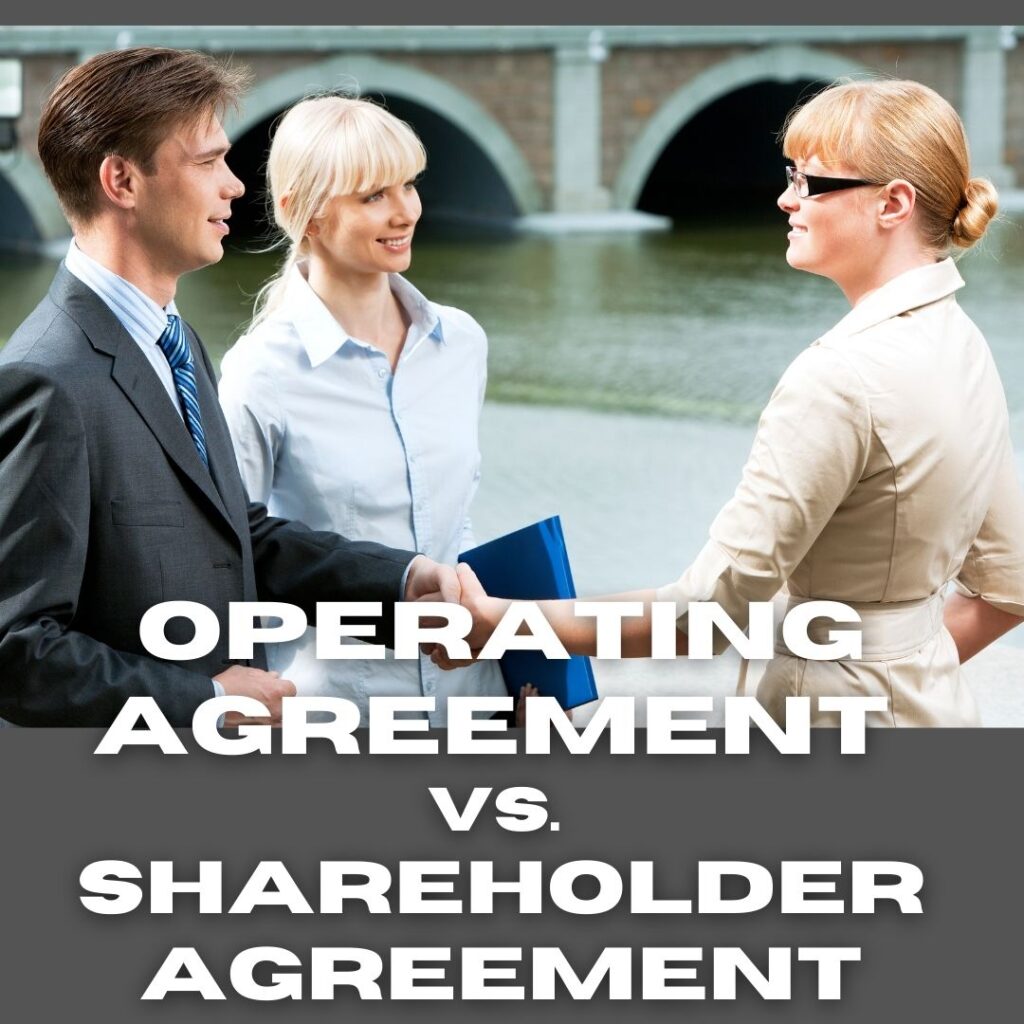The Operating Agreement for an LLC and the Bylaws for a corporation each respectively govern the internal relations amongst the business owners and with the business. The freedom to contract under the Revised Uniform Limited Liability Company Act (for LLCs) and the Model Business Act (for corporations) provide entrepreneurs with several options to consider for inclusion in the Operating Agreement or Bylaws.
The Operating Agreement details the relations among the members as members and between the members and the LLC, the rights and duties of any manager of the LLC, the activities of the LLC and the conduct of those activities, and the means and conditions for amending the Operating Agreement. The Operating Agreement is the manner in which the LLC may:
- modify or eliminate the duty to refrain from competing with the company;
- modify or eliminate the duty to refrain from dealing with the company in the conduct or winding up of the company’s business as or on behalf of a party having an interest adverse to the company;
- identify specific types or categories of activities that do not violate the duty of loyalty;
- alter the duty of care, except to authorize intentional misconduct or knowing violation of law;
- alter any other fiduciary duty, including eliminating particular aspects of that duty;
- prescribe the standards by which to measure the performance of the contractual obligation of good faith and fair dealing; and
- specify the method by which a specific act or transaction that would otherwise violate the duty of loyalty may be authorized or ratified by one or more disinterested and independent persons after full disclosure of all material facts.
Because the Operating Agreement will be governing the respective relationships by and among members and managers, the Operating Agreement needs to consider the business purposes of the LLC, consider transfer restrictions on membership interests, detail where members and managers meetings will be held, and the authority of the officers and/or managers. Even with a single-member LLC, reverting to a more simplistic Operating Agreement may be inappropriate if there are plans for expansion of members. Thus, in addition to considering where the LLC is now, you should always give consideration to the long-term goals of the LLC as well to eliminate the need for substantially modifying the Operating Agreement if expansion is successful.
The Operating Agreement should also contain provisions to ensure that the LLC complies with the applicable tax rules. A multi-member LLC is typically taxed as a partnership while a single-member LLC, absent an election to the contrary, is typically taxed as a disregarded entity.
The Bylaws for a corporation govern the internal relations among shareholders and directors, including voting rights, indemnification provisions, and notice requirements for annual and special meetings. The Bylaws “may contain any provision for managing the business and regulating the affairs of the corporation that is not inconsistent with law or the articles of incorporation.” As such, many of the same considerations contemplated in drafting the Operating Agreement are also applicable to drafting Bylaws.
The Bylaws (or the Articles of Incorporation) must also state whether there is an applicable Shareholders Agreement. A Shareholder Agreement is valid for 10 years, unless otherwise stated, and must be conspicuously noted on the front or back of each outstanding stock certificate. The Shareholder Agreement may also, even if it is inconsistent with one or more provisions of the Model Business Act:
- eliminate the board of directors or restrict the discretion or powers of the board of directors;
- govern the authorization or making of distributions;
- establish who shall be directors or officers;
- set forth the exercise or division of voting power;
- require dissolution of the corporation at the request of one or more of the shareholders upon the occurrence of a specified event; or
- otherwise govern the exercise of the corporate powers or management of the business and affairs of the corporation among the shareholders, directors and the corporation.
A Shareholders Agreement is especially applicable in a closely held corporation to ensure that no shareholder can unilaterally bring an outsider into the ownership circle and to provide rules to follow if the shareholders part ways. In the LLC context, the same transfer restrictions are typically encompassed in the Operating Agreement.
In the closely-held context, both agreements help ensure that the entity and ownership of the entity are as contemplated by the owners. While many of the provisions may seem unnecessary or overly complex during inception when the owners are agreeable and working together, the agreements help govern the parties when the relationship deteriorates and provide a roadmap during the business dissolution.

The material contained herein is provided for informational purposes only and is not legal advice, nor is it a substitute for obtaining legal advice from an attorney. Each situation is unique, and you should not act or rely on any information contained herein without seeking the advice of an experienced attorney. All information contained in links are the property of the linked site.

